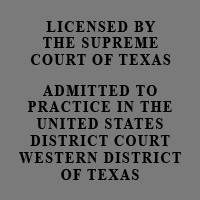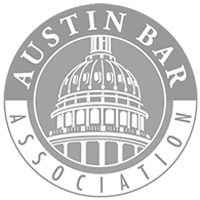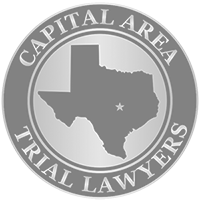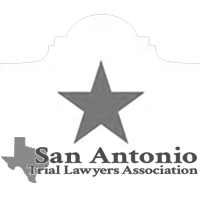Texas Inflated Average Wholesale Price Whistleblower Lawyer & Drug Price Fraud Whistleblower Lawyer Handles Pharmacy Drug Price Fraud Whistleblower Lawsuits, Pharmacy Inflated Average Wholesale Price Medicaid Fraud Whistleblower Lawsuits, Medicaid Fraudulent Drug Price Fraud Whistleblower Lawsuits, Pharmacy False Price Information Lawsuits, and Pharmacy Employee Whistleblower Lawsuits by Texas Inflated Average Wholesale Price Whistleblower Lawyer & Drug Price Fraud Pharmacy Employee Whistleblower Lawyer Jason Coomer
Drug Price Fraud Whistleblower Lawsuits, Average Wholesale Price Drug Fraud Whistleblower Lawsuits, Drug Price Fixing Whistleblower Lawsuits, Drug Kickback Lawsuits, and Drug False Price Lawsuits are types of qui tam whistleblower claims where a drug company or pharmacy uses inflated drug prices and inflated drug spreads to increase their profits. Pharmaceutical Executives, Drug Representatives, and other health care professionals are encouraged to blow the whistle on these types of fraudulent drug pricing schemes.
For more information on a potential Drug Price Fraud Whistleblower Lawsuit, feel free to contact Average Wholesale Price Drug Pricing Fraud Whistleblower Lawyer Jason Coomer via e-mail message or use our submission form to discuss a potential pharmaceutical Medicare drug price fraud whistleblower lawsuit, Medicaid drug price fraud whistleblower lawsuit, or other government health program fraudulent drug pricing scheme whistleblower Lawsuit.
Texas and Several Other States Are Using Pharmacy Drug Price Fraud Whistleblower Lawsuits, Pharmacy Inflated Average Wholesale Price Medicaid Fraud Whistleblower Lawsuits, Medicaid Fraudulent Drug Price Fraud Whistleblower Lawsuits, Pharmacy Drug Price Kickback Whistleblower Lawsuits, Pharmacy False Price Information Lawsuits, and Pharmacy Employee Whistleblower Lawsuits to Recover Large Amounts of Money
State Attorney General Offices are also targeting retail pharmacy chains that seek to manipulate drug prices to their advantage. These drug price Medicaid fraud whistleblower lawsuits include pharmacy chains that fail to perform required a drug utilization review and attempt to defraud government health care programs. Many of these State Attorney General Offices are working with drug price fraud whistleblower Ven-A-Care. This pharmacy drug price fraud whistleblower has been working on drug fraud cases since 1994 and has held state and federal governments recover more than $2 billion and has won roughly $380 million for itself in the process.
On February 1, 2011, a Travis
County, Texas jury found that a global
pharmaceutical manufacturer had misrepresented
drug prices to the state's Medicaid program and
said the drug company should pay the state and
federal government $170.3 million. These
Drug Price Medicaid Fraud Lawsuits are becoming
more common as evidence is coming to light that
the $700 Billion a year drug industry includes
some large drug companies that are defrauding
Medicaid, Medicare, the VA, Tricare, and other
governmental benefit programs out of vasts
amounts of money.
Several governmental officials have made it
clear that those who defraud the Medicaid
program, Medicare, the VA, Tricare, CHIP and
other government benefit programs will be held
accountable for their actions. Recent
changes in the False Claims Act and other Qui
Tam laws have created stronger protections and
economic incentives for whistleblowers with
knowledge of drug price fraud and other forms of
Medicare Fraud and Medicaid Fraud. As
such, it is important for drug price fraud
whistleblowers, pharmaceutical representative
whistleblowers, medical device sales
representative whistleblowers, drug marketing
representative whistleblowers, and other drug
executive whistleblowers to blow the whistle on
drug fraud pricing schemes.
Pharmaceutical Company Drug Price Fraud Whistleblower Lawsuit Information, Drug Company False Drug Pricing Whistleblower Lawsuit Information, Pharmaceutical Executive Whistleblower Lawsuit Information, Medicaid False Drug Price Lawsuit Information, and Medicare False Drug Pricing Lawsuit Information
Pharmaceutical Companies and Drug Companies that engage in schemes to report false and inflated prices for pharmaceutical products, knowing that federal healthcare programs rely on those reported prices to set payment rates are committing Drug Price Fraud and can be held liable for these illegal actions. The difference between the resulting inflated government payments and the actual price paid by healthcare providers for a drug is referred to as the “spread.” The larger the spread on a drug, the larger the profit for the drug company, health care provider or pharmacist who is reimbursed by the government. For this reason there is an economic incentive for drug companies to artificially inflate the spread or price as much as possible in order to make higher profits at the expense of taxpayers.
Pharmaceutical Executives that commit drug pricing fraud, cooperate with other drug executives that are committing drug price fraud, or fail to report fraudulent drug price schemes can be held liable for criminal and civil prosecution. In fact, several pharmaceutical executives have been convicted of drug price fraud and have been sent to prison. Further, the government is cracking done on drug price fraud schemes and is actively encouraging drug price fraud whistleblowers to step forward to report fraudulent drug pricing schemes that are costing government health care programs like Medicaid, Medicare, Tricare, and the Veteran's Administration millions of dollars. Pharmaceutical Sales Executives, Pharmacists, Drug Representatives, and other health care professionals that properly blow the whistle on fraudulent drug pricing schemes can receive a significant recovery on money recovered by being the first to file on Drug Price Medicare fraud, Drug Price Medicaid fraud, Drug Price Tricare fraud, and/or Drug Price VA. Drug Price Medicaid Fraud Whistleblower Lawyer, Inflated Average Wholesale Price Medicaid Fraud Whistleblower Lawyer, Medicaid Fraudulent Drug Price Lawyer, Drug Price Kickback Whistleblower Lawyer, Pharmaceutical False Price Whistleblower Lawyer, and Pharmacy Medicaid Drug Price Fraud Lawyer
Pharmacy executives, pharmacy employees, drug company employees, and other professionals who are the original source of specialized knowledge of drug pricing fraud can recover large economic rewards for properly reporting fraudulent drug pricing schemes. A successful false claims act qui tam claim can not only result in a significant recovery for the drug representative whistleblower, pharmaceutical executive whistleblower, or pharmaceutical accounting whistleblower, but can result in uncovering Medicare price fraud, Medicaid price fraud, Tricare price fraud, and/or VA price fraud that could result in millions or billions of dollars being recovered or saved by taxpayers. There are several keys to a successful Drug Price Fraud False Claims Act Qui Tam Whistleblower Lawsuit including 1) obtaining original and specialized information of the fraud, 2) being the first to file regarding the specific fraud, and 3) protecting the whistleblower for retaliation. Feel free to go to the following web page for Inflated Average Wholesale Price Whistleblower Lawsuit Information & Drug Price Fraud Lawsuit Information
Pharmaceutical Company Drug Price Fraud Whistleblower Lawsuit Information, Drug Company False Drug Pricing Whistleblower Lawsuit Information, Pharmaceutical Executive Whistleblower Lawsuit Information, Medicaid False Drug Price Lawsuit Information, and Medicare False Drug Pricing Lawsuit Information
Pharmaceutical Companies and Drug Companies that engage in schemes to report false and inflated prices for pharmaceutical products, knowing that federal healthcare programs rely on those reported prices to set payment rates are committing Drug Price Fraud and can be held liable for these illegal actions. The difference between the resulting inflated government payments and the actual price paid by healthcare providers for a drug is referred to as the “spread.” The larger the spread on a drug, the larger the profit for the health care provider or pharmacist who is reimbursed by the government.
Pharmaceutical Executives that commit drug pricing fraud, cooperate with other drug executives that are committing drug price fraud, or fail to report fraudulent drug price schemes can be held liable for criminal and civil prosecution. In fact, the government is cracking done on drug price fraud schemes and is actively encouraging drug price fraud whistleblowers to step forward to report fraudulent drug pricing schemes that are costing government health care programs like Medicaid, Medicare, Tricare, and the Veteran's Administration millions of dollars. Pharmaceutical Sales Executives, Pharmacists, Drug Representatives, and other health care professionals that properly blow the whistle on fraudulent drug pricing schemes can receive a significant recovery on money recovered by being the first to file on Drug Price Medicare fraud, Drug Price Medicaid fraud, Drug Price Tricare fraud, and/or Drug Price VA.
Pharmacy Drug Price Fraud Whistleblower Lawyers, Pharmacy Inflated Average Wholesale Price Medicaid Fraud Whistleblower Lawyers, Medicaid Fraudulent Drug Price Fraud Whistleblower Lawyers, Pharmacy Drug Price Kickback Whistleblower Lawyers, Pharmacy False Price Information Lawyers, and Pharmacy Employee Whistleblower Lawyers
Pharmaceutical executives and representatives who are the original source of specialized knowledge of drug pricing fraud can recover large economic rewards for properly reporting fraudulent drug pricing schemes. A successful false claims act qui tam claim can not only result in a significant recovery for the drug representative whistleblower, pharmaceutical executive whistleblower, or pharmaceutical accounting whistleblower, but can result in uncovering Medicare price fraud, Medicaid price fraud, Tricare price fraud, and/or VA price fraud that could result in millions or billions of dollars being recovered or saved by taxpayers.
There are several keys to a successful Drug Price Fraud False Claims Act Qui Tam Whistleblower Lawsuit including 1) obtaining original and specialized information of the fraud, 2) being the first to file regarding the specific fraud, and 3) protecting the whistleblower for retaliation.
Pharmaceutical Representative Whistleblower Protection, Pharmaceutical Executive Whistleblower Protection, Drug Marketing Whistleblower Protection, and Fraud False Claims Act Whistleblower Protections
It is also important to understand potential whistleblower protections under the False Claims Act and to discuss with an attorney how to prepare for potential retaliation or aggressive attacks by the employer or contractor. For more information on this topic please go to the following web page on False Claims Act Lawsuit Whistleblower Protections.
Fraudulent Drug Pricing Schemes in the News including Pharmaceutical Company Drug Price Fraud Whistleblower Lawsuit Information, Drug Company False Drug Pricing Whistleblower Lawsuit Information, Pharmaceutical Executive Whistleblower Lawsuit Information, Medicaid False Drug Pricing Lawsuit Information, and Medicare False Drug Pricing Lawsuit Information
It is important for the pharmaceutical representative whistleblowers, medical device sales representative whistleblowers, drug marketing representative whistleblowers, and other drug executive whistleblowers to blow the whistle on drug fraud pricing schemes. Below are some press releases on success Drug Price Fraud Lawsuits that have been in the news.
FOR IMMEDIATE RELEASE TUESDAY, DECEMBER 21, 2010 WWW.USDOJ.GOV/USAO/MA E-MAIL: USAMA.MEDIA@USDOJ.GOV
PHARMACEUTICAL MANUFACTURER TO PAY $280 MILLION TO SETTLE FALSE CLAIMS ACT CASE
Related Settlements this Month now Total More Than $701 million
BOSTON, Mass. � The Justice Department announced today that Dey Inc., Dey Pharma L.P. (formerly known as Dey, L.P.), and Dey L.P. Inc. have agreed to pay $280 million to settle False Claims Act allegations. This settlement resolves claims by the United States that the defendants engaged in a scheme to report false and inflated prices for numerous pharmaceutical products, knowing that federal healthcare programs relied on those reported prices to set payment rates. The actual sales prices for the Dey products were far less than what Dey reported.
The United States alleged that Dey reported false prices for the following drugs: Albuterol Sulfate, Albuterol MDI, Cromolyn Sodium, and Ipratropium Bromide. The difference between the resulting inflated government payments and the actual price paid by healthcare providers for a drug is referred to as the “spread.” The larger the spread on a drug, the larger the profit for the health care provider or pharmacist who is reimbursed by the government. The government alleges that Dey The difference between the resulting inflated government payments and the actual price paid by healthcare providers for a drug is referred to as the spread.� The larger the spread on a drug, the larger the profit for the health care provider or pharmacist who is reimbursed by the government.
This is the fourth such settlement with pharmaceutical manufacturers that the Department of Justice has announced this month. On Dec.7, 2010, the Department announced settlements totaling $421.1 million involving similar allegations against three other manufacturers: Abbott Laboratories Inc., B. Braun Medical Inc., and Roxane Laboratories Inc.
With this settlement, the Department of Justice has now recovered over $2 billion dollars from pharmaceutical manufacturers arising from similar unlawful drug pricing schemes. As the department alleged in its complaint against Dey, by offering customers one price and then falsely reporting inflated prices to the lists the government uses when calculating how much to pay for the drugs, pharmaceutical companies created an incentive for the purchase of their drugs by allowing buyers to pocket the difference between the actual price of the drug and the inflated government payment,� said Tony West, Assistant Attorney General for the Civil Division of the Department of Justice. Taxpayer-funded kickback schemes like this not only cost federal health care programs millions of dollars, they threaten to undermine the integrity of the choices health care providers make for their patients.�
TAP PHARMACEUTICAL PRODUCTS INC. AND SEVEN OTHERS CHARGED WITH HEALTH CARE CRIMES; COMPANY AGREES TO PAY $875 MILLION TO SETTLE CHARGES
Boston, MA... United States Attorney Michael J. Sullivan, Department of Health and Human Services Inspector General Janet Rehnquist, Assistant Inspector General for Investigations and Director of the Department of Defense Criminal Investigation Service Carol Levy, and Special Agent in Charge of the Federal Bureau of Investigation in New England Charles S. Prouty, announced today that:
(1) TAP Pharmaceutical Products Inc. ("TAP"), a major American pharmaceutical manufacturer, has agreed to pay $875,000,000 to resolve criminal charges and civil liabilities in connection with its fraudulent drug pricing and marketing conduct with regard to Lupron, a drug sold by TAP primarily for treatment of advanced prostate cancer in men. The global agreement includes:
(a) TAP has agreed to plead guilty to a conspiracy to violate the PrescriptionDrug Marketing Act and to pay a $290,000,000 criminal fine, the largest criminal fine ever in a health care fraud prosecution. The plea agreement between the United States and TAP specifically states that TAP's criminal conduct caused losses of $145,000,000.
(b) TAP has agreed to settle its federal civil False Claims Act liabilities and to pay the U.S. Government $559,483,560 for filing false and fraudulent claims with the Medicare and Medicaid programs as a result of TAP's fraudulent drug pricing schemes and sales and marketing misconduct.
(c) TAP has agreed to settle its civil liabilities to the fifty states and the District of Columbia and to pay them $25,516,440 for filing false and fraudulent claims with the states, as a result of TAP's drug pricing and marketing misconduct, and from TAP's failure to provide the state Medicaid programs TAP's best price for those drugs as required by law.
(d) TAP has agreed to comply with the terms of a sweeping corporate integrity agreement which, among other things, significantly changes the manner in which TAP supervises its marketing and sales staff, and ensures that TAP will report to the Medicare and Medicaid programs the true average sale price for drugs reimbursed by those programs.
(2) A federal grand jury returned an indictment unsealed today, charging one physician and six TAP managers with conspiracy to pay kickbacks to doctors and other customers, conspiracy to defraud the state Medicaid programs on TAP's obligation to sell products to those programs at its best price, and conspiracy to violate the Prescription Drug Marketing Act by causing free samples to be illegally billed to the Medicare program. The indictment charges that the TAP defendants offered to give things of value, including free drugs, so-called educational grants, trips to resorts, free consulting services, medical equipment, and forgiveness of debt, to physicians and other customers to obtain their referrals of prescriptions for Lupron to Medicare program beneficiaries, in violation of the anti-kickback statute. The indictment also charges that the TAP defendants aided and abetted, and caused the billings to hundreds of elderly Medicare program beneficiaries and to the Medicare program directly, for thousands of free samples of Lupron, used in the treatment of prostate cancer, in violation of the Prescription Drug Marketing Act.
Lupron is marketed by TAP primarily for the treatment of prostate cancer. Lupron is identical in effectiveness to the drug Zolodex, produced by a competitor, which was also available for prescription in the 1990s. While Medicare does not pay for most drugs needed by Medicare beneficiaries, Medicare does cover drugs, such as Lupron, that must be injected under the supervision of a physician. Medicare paid for 80% of either the urologist's charge for Lupron or the average wholesale price reported by TAP, whichever was lower, and the patient was responsible for the remaining 20% as a copayment.
As part of its civil allegations, the Government alleged that throughout the1990s, TAP set and controlled the price at which the Medicare program reimbursed physicians for the prescription of Lupron by reporting its average wholesale price ("AWP"). The AWP reported by TAP was significantly higher than the average sales price TAP offered physicians and other customers for the drug. The Government alleged that TAP marketed the spread between its discounted prices paid by physicians and the significantly higher Medicare reimbursement based on AWP as an inducement to physicians to obtain their Lupron business. The Government further alleged that TAP concealed the true discounted prices paid by physicians from Medicare, and falsely advised physicians to report the higher AWP rather than their real discounted price for the drug. The Government further alleged that TAP set its AWPs of Lupron at levels far higher than the price for which wholesalers or distributors actually sold the drug, resulting in falsely inflated prices that were neither the physician's actual cost nor the true wholesaler's average price.
"The Medicare and Medicaid drug programs are bulwarks against the financial hardship that can be caused by the need for life-saving medical treatments," said Robert D. McCallum, Jr., Assistant Attorney General for the Justice Department's Civil Division. "These programs cannot afford abuses that enrich doctors or drug companies at the expense of taxpayers and patients. This settlement agreement and the compliance steps that TAP has agreed to take will reinforce the government's long-standing objective of paying Medicare and Medicaid providers for the reasonable costs of the drugs they administer."
"The urologists and the TAP employees who knowingly participated in this broad conspiracy took advantage of older Americans suffering from prostate cancer. The indictment unsealed today alleges that TAP employees sought to influence the doctors' decisions about what drug to prescribe to patients by giving them kickbacks and bribes, from free samples to free consulting services to expensive trips to golf and ski resorts to so-called educational grants," said U.S. Attorney Sullivan. "In all instances where the kickbacks worked to ensure the prescription of TAP's product Lupron, the Medicare Program and the elderly Americans suffering from prostate cancer paid more for their care than if the doctor had prescribed the competitor's product."
"Medicare beneficiaries and all American patients need to get the right pharmaceuticals, based on medical criteria, and at a fair price. This is crucial both to ensure good quality health care and to use our resources effectively. Today's settlement is a clear message that the federal government will protect the best interests of beneficiaries and taxpayers," said HHS Secretary Tommy G. Thompson.
"This prosecution has resulted in the largest criminal and civil recoveries in any health care fraud case in the country. The fraud schemes used by TAP Pharmaceuticals and others impacts significantly on the integrity of TRICARE, the Department of Defense's healthcare system," stated DCIS Special Agent in Charge Edward Bradley. "Healthcare fraud increases patients' costs and negatively effects the delivery of health care services to over 8 million military members, retirees, and their dependents."
The indictment unsealed today against the seven individuals alleges that inducements to physicians included free products; free consulting services; trips to expensive golf and ski resorts; money disguised as "educational grants," but in fact was used and intended to be used for many purposes, including cocktail party bar tabs, office Christmas parties, medical equipment, travel expenses for urologists and their staff to attend conferences; and discounts on Lupron sold to treat endometriosis in women to effect a lower price on Lupron used in the treatment of men with prostate cancer.
The investigation commenced in the District of Massachusetts in 1997 after a urologist employed by Tufts Associated Health Maintenance Organization ("Tufts HMO") in Waltham, Dr. Joseph Gerstein, reported to law enforcement authorities that he had been offered an educational grant if he would reverse a decision he had made on behalf of Tufts that it would only cover the less expensive drug Zoladex. As charged in the indictment, SWIRSKI and CHASE met with Dr. Gerstein after he began working with the FBI and the Office of Inspector General, and during those meetings, offered him $65,000 in educational grants that he could use for any purpose "whatever," together with discounts on other products, if he would reverse Tufts' decision not to include Lupron on its formulary for treating patients that it insured who were suffering from prostate cancer. The investigation was also triggered by a civil False Claims Act suit filed in 1996 by Douglas Durand, after he had quit his employment at TAP as Vice President of Sales, after just one year because of his concerns about the illegal marketing conduct of some of TAP's employees.
The civil False Claims Act provides that where persons submit, cause others to submit, or conspire to submit, false or fraudulent claims to the United States Government, including its federal health care programs, the Government is entitled to recover treble damages and $5,500 to $11,000 for each false or fraudulent claim submitted. Private individuals, like Dr. Gerstein and Douglas Durand, are allowed to file whistleblower suits under the False Claims Act to bring the government information about wrongdoing, and if the government is successful in resolving or litigating their claims, to share in the recovery by receiving generally 15% to 25% of the amount recovered. As a part of today's resolution, those two individuals together with Tufts Associated HMO will share as whistleblowers, pursuant to the Congressional directive in the False Claims Act, 17% of the civil recovery, or an amount of approximately $95 million.
"The payment by TAP of nearly $900 million including the highest criminal fine ever imposed on any health care company, and the indictment of the six TAP employees sends a very strong signal to the pharmaceutical industry that it best police its employees' conduct and deal strongly with those who would gain sales at the expense of the health care programs for the poor and the elderly and the persons insured by those programs," said U.S. Attorney Sullivan.
As part of a condition for doing business in the future with providers who are members of the Medicare and Medicaid programs, TAP agreed to enter into an extensive Corporate Integrity Agreement. That agreement provides for significant training of TAP's sales and marketing employees and changes in supervision and controls. It also requires TAP to report to the Medicare and Medicaid programs accurate pricing information showing TAP's true average sales price.
"In recent years, the pharmaceutical industry has come under increasing scrutiny for its pricing, sales, and marketing practices. The OIG, together with other government agencies, will use all available enforcement authorities, where appropriate, to address these practices," said HHS Inspector General Janet Rehnquist.
The entire amount of the $290 million criminal fine paid by TAP will go to the Department of Justice's Crime Victims Fund. The Fund was established in 1984 by the Victims of Crime Act ("VOCA") and serves as a major funding source for victim services throughout the country. Each year, millions of dollars are deposited into this fund from criminal fines, forfeited bail bonds, penalty fees, and special assessments collected by U.S. Attorney's Offices, U.S. Courts, and the Bureau of Prisons. State assistance programs use VOCA funds to provide or contract for services to victims of rape, drunk driving, child abuse, domestic violence, homicide, and other crimes. Victims of federal, as well as state crimes, are eligible to receive VOCA-funded services.
The investigation is continuing.
The investigation has been conducted by the agents from the Federal Bureau of Investigation, the Office of Investigations for the Office of Inspector General for the Department of Health and Human Services, the Food and Drug Administration's Office of Criminal Investigations and the Department of Defense's Defense Criminal Investigation Service. On the criminal side, the investigation and prosecution are being handled by Assistant U.S. Attorney Michael K. Loucks, Health Care Fraud Chief. On the civil side, the investigation and prosecution are being handled by Assistant U.S. Attorney Susan Winkler, assisted by Department of Justice Trial Attorney T. Reed Stephens. The Corporate Integrity Agreement was negotiated by Office of General Counsel, Office of Inspector General Assistant Counsel Mary Riordan.
Original and Specialized Information of Fraud is Essential for Pharmaceutical Representative Whistleblower Lawsuits, Medical Device Sales Representative Whistleblower Lawsuits, Drug Marketing Whistleblower Lawsuits, and Medicare Marketing Fraud Lawsuits
As insiders it is common for pharmaceutical representative whistleblowers, medical device sales representative whistleblowers, drug marketing representative whistleblowers, and other marketing executives to specialized knowledge of drug price fraud schemes and fraudulent pricing schemes. As such, it is important for the pharmaceutical representative whistleblower, medical device sales representative whistleblower, drug marketing representative whistleblower, or other marketing executive whistleblower that is interested in self protection and blowing the whistle on drug price fraud to obtain and preserve evidence of the drug pricing fraud. Whether this evidence is in e-mail messages, memos, marketing plans, marketing materials, recordings, or other documents, it is important for the whistleblower to have evidence of the marketing fraud. It is also often helpful to have fellow whistleblowers that can help build the Medicare Drug Price Fraud Lawsuit or Medicaid Drug Price Fraud Lawsuit.
Pharmacy Drug Price Fraud Whistleblower Lawyers, Pharmacy Inflated Average Wholesale Price Medicaid Fraud Whistleblower Lawyers, Medicaid Fraudulent Drug Price Fraud Whistleblower Lawyers, Pharmacy Drug Price Kickback Whistleblower Lawyers, Pharmacy False Price Information Lawyers, and Pharmacy Employee Whistleblower Lawyers
It is important that Accountants, Drug Executives, and Health Care Professions blow the whistle on Pharmaceutical Companies and Drug Companies that engage in schemes to report false and inflated prices for pharmaceutical products, knowing that federal healthcare programs rely on those reported prices to set payment rates are committing Drug Price Fraud. These large drug companies are defrauding the United States Government out of millions or billions of dollars. As a Texas Drug Price Fraud Lawyer, he works with other powerful qui tam lawyers that handle large Health Care Government Fraud cases. He works with San Antonio Drug Price Fraud Lawyers, Dallas Fraudulent Drug Price Scheme Fraud Lawyers, Houston Medicare Drug Price Fraud Lawyers, and other Texas Health Care Drug Price Fraud Lawyers as well as with Health Care Average Wholesale Price and Drug Price Fraud Lawyers throughout the nation to blow the whistle on fraud that hurts the United States.
Being the First to File on the Fraud is Essential for Recovery Under the False Claims Act and can Prevent Potential Criminal Liability in Pharmaceutical Representative Medicare Fraud, Medical Device Sales Representative Medicare Drug Price Fraud, Mediciad Drug Pricing Fraud, and other Medicaid Drug Fraud Lawsuits
It is also essential to not delay in coming forward with a False Claim Act Drug Price Fraud Lawsuit as the first whistleblower to file is eligible to be a relator and make a large recovery for exposing the fraud. Additionally, when the fraudulent scheme is exposed, the people that kept the fraud secret can sometimes be found liable for criminal activity for not exposing the fraud that was being committed and further be held liable for continuing criminal activity.
Pharmacy Drug Price Fraud Whistleblower Lawyer, Pharmacy Inflated Average Wholesale Price Medicaid Fraud Whistleblower Lawyer, Medicaid Fraudulent Drug Price Fraud Whistleblower Lawyer, Pharmacy Drug Price Kickback Whistleblower Lawyer, Pharmacy False Price Information Lawyer, and Pharmacy Employee Whistleblower Lawyer
If you are a drug marketing representative, drug marketing executive, medical device marketing representative, medical device marketing executive, medical doctor, or other pharmaceutical or medical device professional with original source knowledge of drug price fraud, it is important that you are the first to step forward to blow the whistle on the fraud. If you are a pharmaceutical executive drug price fraud whistleblower that is aware of fraudulent drug price fixing, drug kickbacks, Medicaid drug price fraud, or other Medicare drug price fraud by a pharmaceutical marketing department, health care provider, or drug company, feel free to contact Medicare and Medicaid Drug Price Fraud Whistleblower Lawyer Jason Coomer via e-mail message or our submission form about a potential Medicare drug price fraud whistleblower lawsuit, Medicaid drug fraud whistleblower lawsuit, or other pharmaceutical executive drug fraud whistleblower qui tam lawsuit.
Feel Free to Contact Us with any Questions
Associations




